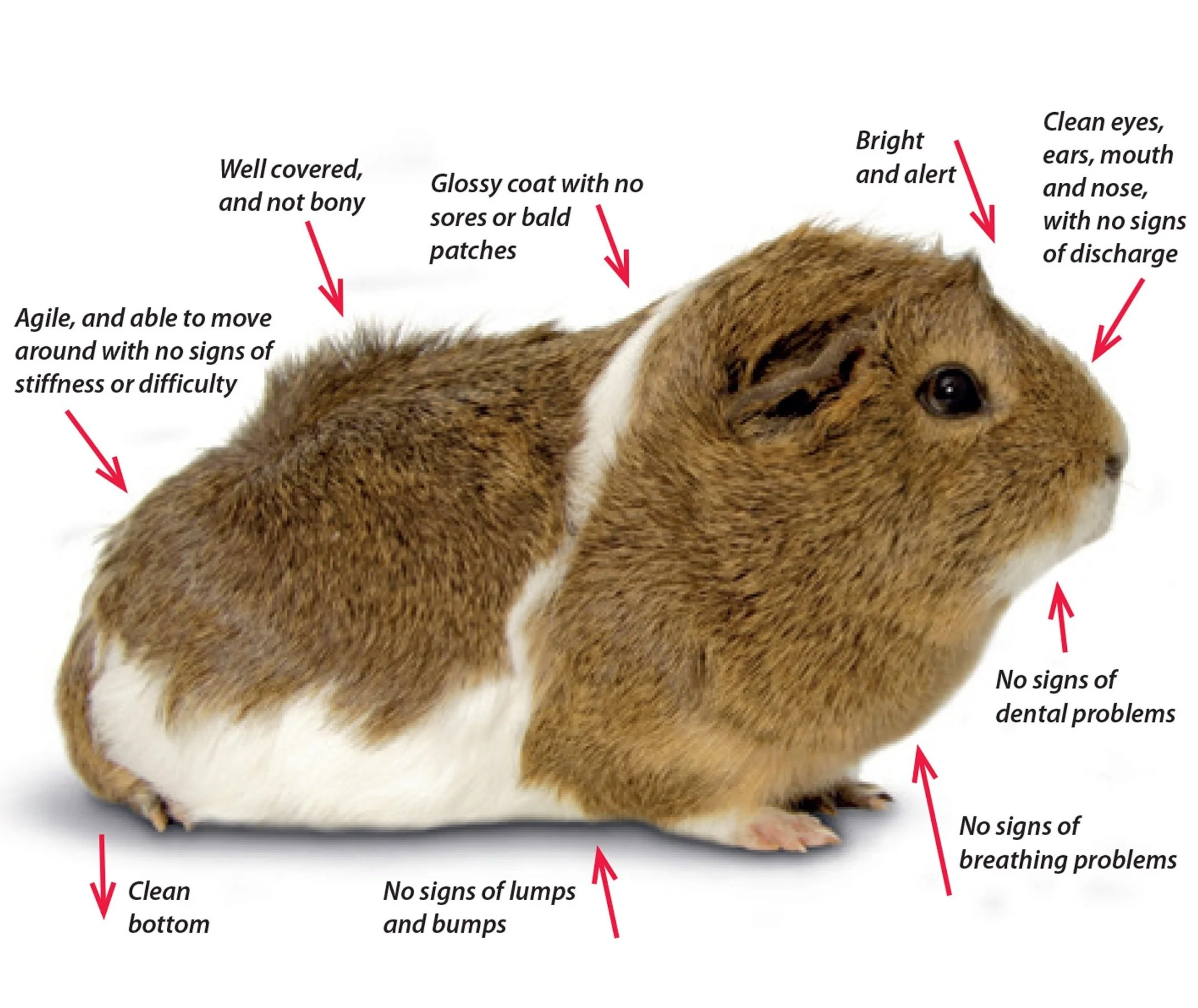How to Tell if My Guinea Pig is Sick
How Do I Know if My Guinea Pig is Getting Sick?
No guinea pig owner likes the idea of their precious guinea pigs falling ill, but sadly it is something that is bound to happen at some point in time. In the meantime, it’s always a great idea to learn about the common signs and symptoms of sickness, so you know exactly what to look for if you suspect your guinea pig is getting sick.
One of the most obvious symptoms of a guinea pig health condition is any changes in their physical appearance. This could be weight gain or weight loss, redness, irritation, or open sores in their skin and even hairlessness.
In many cases, symptoms might not present physically, but will present through their behaviour. A sick guinea pig may be quite lethargic, unwilling to eat or drink, they may even be unusually aggressive towards you or other piggies.
Health Checking Your Guinea Pigs
Carrying out weekly health checks on your guinea pigs is a great way to notice any changes or symptoms as soon as they appear. The process of a health check is pretty straightforward, you will just need to check over their entire body and make a note of any changes or abnormalities. Some key areas to focus on are:
Ears.
Eyes.
Mouth and teeth.
Skin and fur.
Legs and feet.
Genitals.
Do Guinea Pigs Get Sick Easily?
Surprisingly, guinea pigs are quite hardy animals, and when kept in an appropriate environment they are very unlikely to fall sick. Most guinea pig health conditions are caused by external factors such as an unsanitary enclosure or a poor diet. The risks to many common guinea pig health problems can be minimised through effective cleaning, a balanced diet and ensuring you carry out regular health checks.
Preventing Sickness Through Cleaning
If their environment falls below suboptimal conditions, it does increase the likelihood of a problem occurring. The most important factor in ensuring the health of your piggies is keeping their enclosure clean.
Cleaning with non-toxic products that are antibacterial and antifungal will help remove any harmful bacteria or fungus that are known to cause sickness. You’ll want to make sure you are spot cleaning daily and a full clean weekly. This means removing poop and urine areas daily, and then fully clearing out the enclosure, disinfecting all items and completely removing and replacing their bedding. Bacteria is attracted to areas with urine and poop, and anything that tends to be consistently moist. Keeping these areas clean and dry will significantly reduce any bacteria growth.
Preventing Sickness Through Diet
Guinea pigs have some very specific dietary needs, and if these aren’t met then they can develop a variety of guinea pig health problems, especially digestive conditions. The main component of a guinea pig’s diet is hay as they need a high amount of fibre for their digestive systems to function. A constant supply of hay also enables them to file down their teeth and prevents them from becoming overgrown.
Guinea pigs also require a daily supply of pellets and fresh veggies to ensure they are getting all the necessary nutrients, most particularly vitamin C. Just like humans, guinea pigs can’t make their own vitamin C so they need to source it from their diet.
If these diet needs aren’t met, your piggy can quickly become a very sick guinea pig.
An incorrect diet can lead to diarrhoea, bloating, dental disease, weight gain and weight loss.
How to Treat a Sick Guinea Pig
The methods of treating your guinea pig completely depends on what the cause of their illness is. Before you attempt any at home treatments, it is always recommended to consult a vet first. Yes, it may be an expensive trip, but you are much more likely to find the answers for your guinea pig health problems this way.
Of course, if the vet gives you a specific treatment plan, then you should follow this as closely as possible to guarantee your guinea pigs recovery.
There are some additional things you can do at home to give them the extra boost they may need to recover from their sickness. You’ll want to make sure they are eating and drinking the correct amount. A sick guinea pig may avoid eating or drinking, but it is essential that you encourage them to eat. Getting the right nutrients will help their immune system fight off any illnesses.
You may also want to separate the sick guinea pig from the rest of the group, depending on what is making them sick. An infection such as ringworm can be highly contagious and will easily spread to all of the piggies.
How Do You Comfort a Guinea Pig?
If you have a sick guinea pig on your hands, it is crucial to help them feel safe and comfortable in their environment. Sickness or injury can lead to your piggies feeling extra vulnerable and cause them to become increasingly stressed.
To help comfort your guinea pig, the main thing you need to do is secure their enclosure. You may want to place a few extra hides inside to give them more opportunities to stay out of sight. Popping in some of their favourite toys may be a wise idea too. Guinea pigs love to play with their piggy friends, and having their favourite toys around can bring some comfort.
While it can be extremely tempting, it is often best to reduce contact with your sick guinea pig until they have made a recovery. Guinea pigs often don’t like to be handled, and some are quite weary of human contact at all, and so frequent handling may cause them unnecessary stress during this time.





